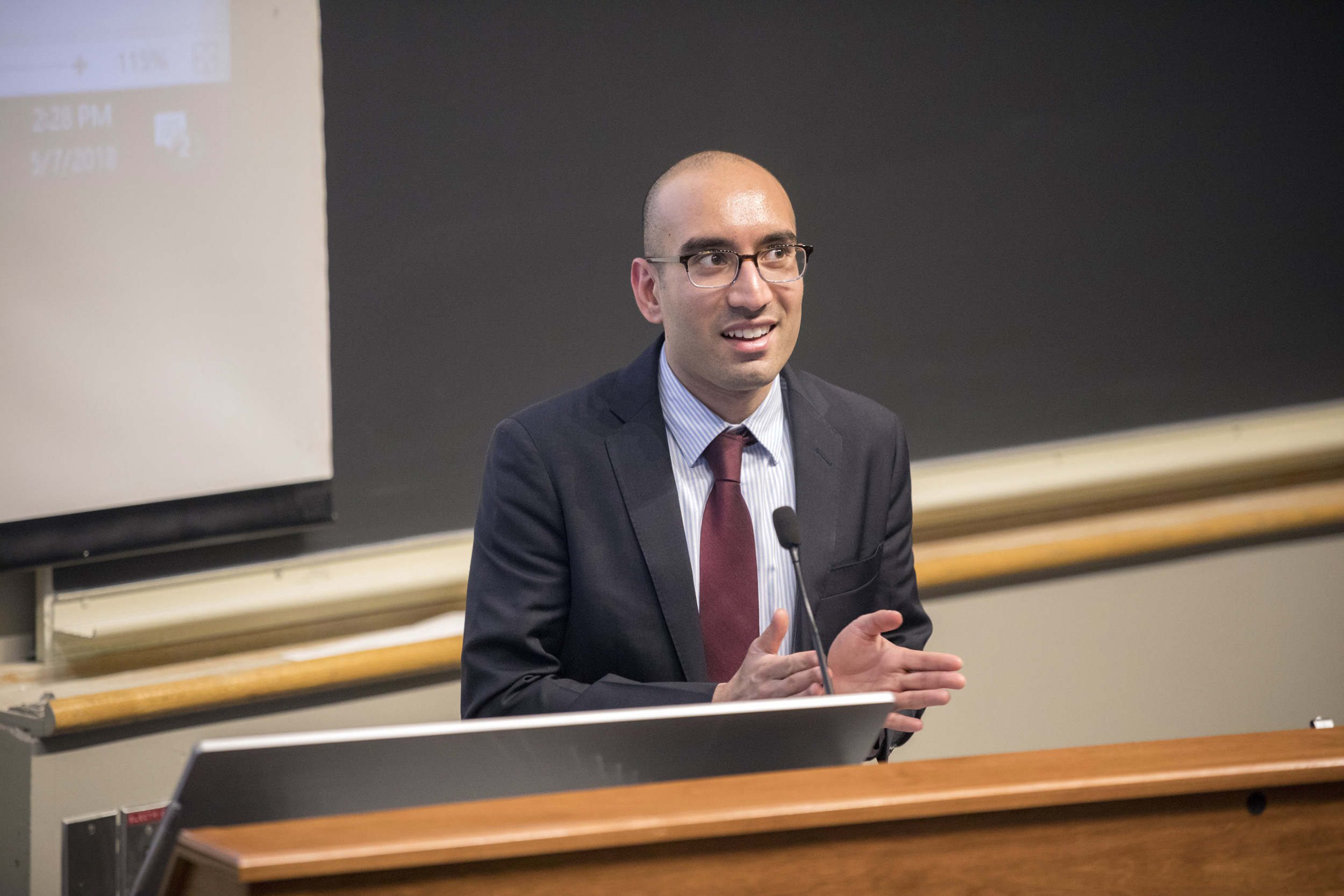
At a panel discussion at the Medical School, members of Students for Environmental Awareness in Medicine, including event planner Shadaab Kazi, gave the physicians’ perspective on how environmental issues will impact human health.
Photos by Kris Snibbe/Harvard Staff Photographer
Environmental medicine brings climate change to forefront
HMS students address health challenges facing people and the planet
The mission for 30 Harvard Medical School (HMS) students is clear: be the generation that takes action now to secure a livable world for future generations to come.
Members of Students for Environmental Awareness in Medicine (SEAM) are working to address how physicians view the impact of environmental issues on human health. And climate change is their predominant focus.
“We have a moral obligation to mobilize and address climate change, as we treat and will continue to treat patients impacted by it,” said Shadaab Kazi, a first-year medical student at HMS and student organizer of SEAM. “We have a critical role in communicating the health challenges posed by this issue, and the need to adapt to these challenges, to the public, and policymakers.”
Kazi spoke to more than 100 members of the Harvard medical community at “The Medical Response to Climate Change: What Can We Do?,” a panel discussion at HMS last week.
The panel included faculty from the Harvard T.H. Chan School of Public Health, Harvard Global Health Institute, and health care professionals from Boston Children’s Hospital and Beth Israel Deaconess Medical Center.
Researchers across Harvard’s campus are pushing key initiatives to address catastrophic human health consequences of climate change — including poor air quality, temperature-related death and illness, disastrous weather events contributing to infection, food and water insecurity, and overall destabilization of the global ecosystem.
“Because we are Harvard Medical School, we must also lead,” William Lensch, chief of staff to HMS Dean George Daley, said in his opening remarks. “Researchers in our medical community are investigating some of the most important and intimidating problems — new and exacerbating clinical challenges in the communities we serve, and we are working to incorporate the consequences of climate change into our curriculum. There’s a lot to be done.”
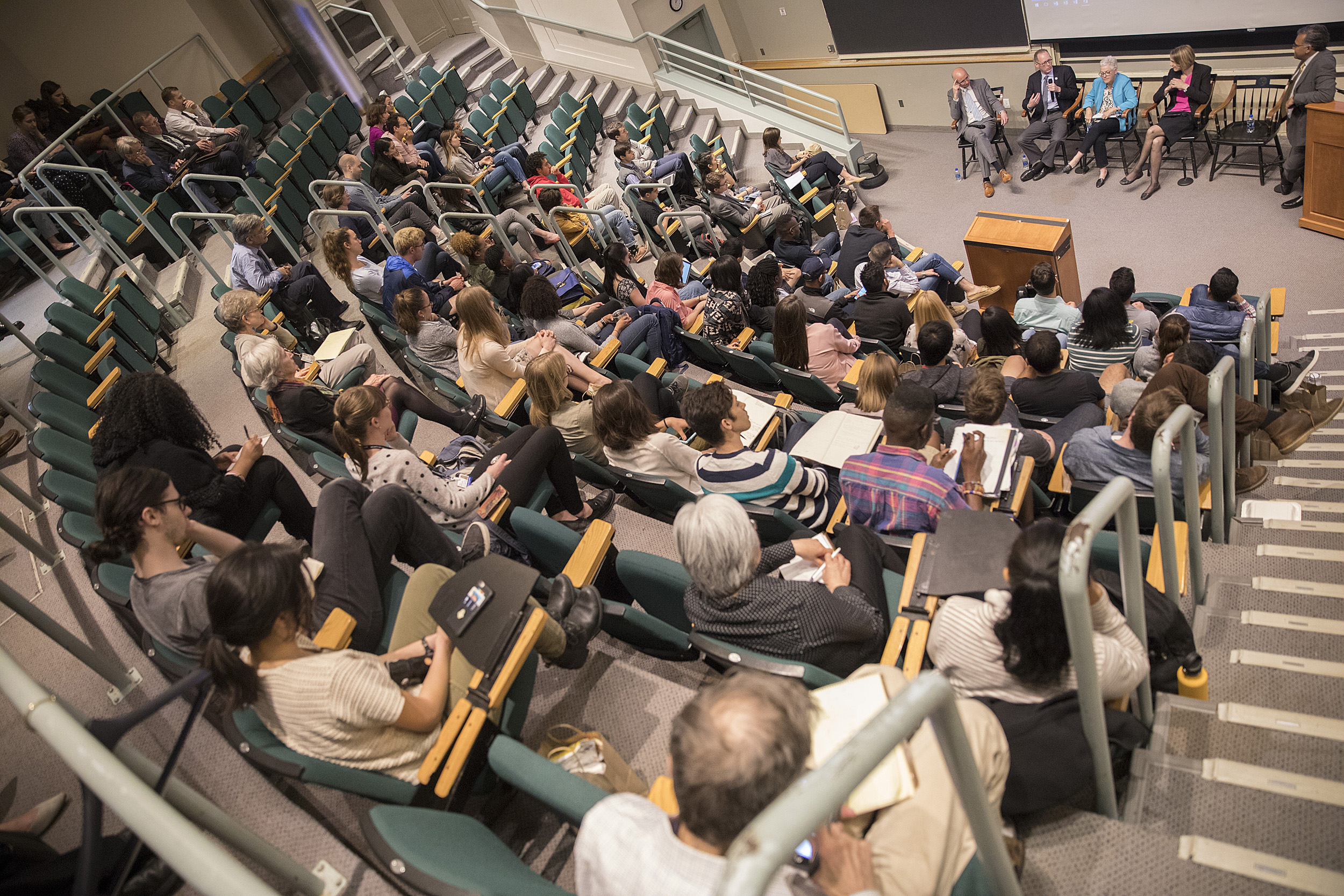
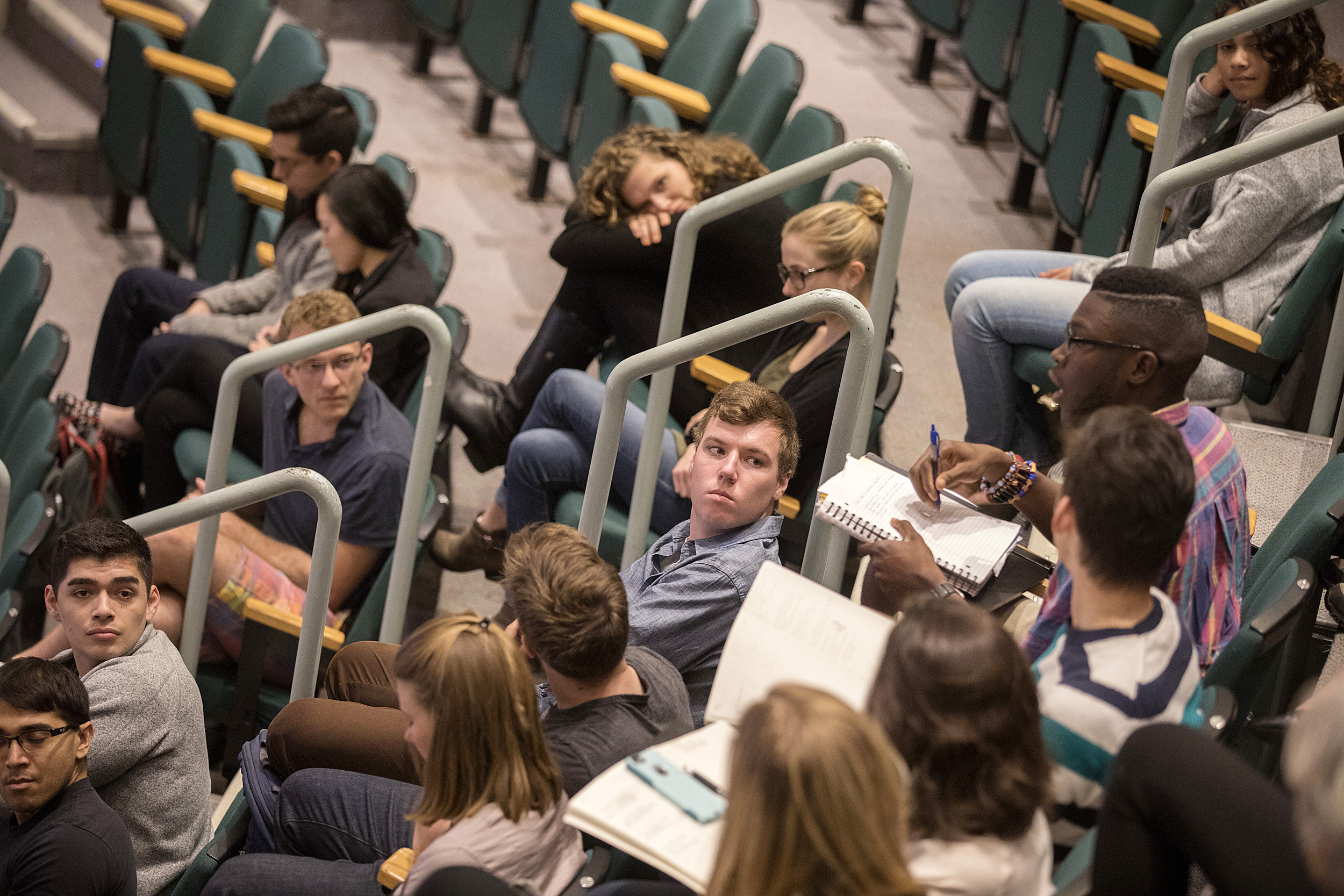
Audience members ask the panelists questions.
HMS, Harvard Business School, and the Faculty of Arts & Sciences (FAS) all have begun efforts to integrate climate change into the learning experience. In April, FAS announced a new College concentration in environmental science and engineering that will launch in the fall.
More than two decades ago, HMS became the first medical school in the world to offer an elective course on climate and health, according to panelist Aaron Bernstein, HMS instructor in pediatrics, co-associate director of the Center for Climate, Health, and the Global Environment at Harvard Chan School, and a pediatrician at Boston Children’s Hospital, who has taught “Human Health and Global Environmental Change” for the past 10 years. This year, he said, a lecture on climate change is part of the required HMS curriculum.
“Climate change, as arguably the greatest health threat facing humanity and a major concern for the practice of medicine, is not an elective topic,” he said. “Physicians must not only understand what is at stake for their patients’ health with climate change, but how climate change will affect our practice of medicine.”
Panelist Mary Rice, assistant professor of medicine at HMS and pulmonary and critical care physician at Beth Israel Deaconess, said when she was an HMS student 15 years ago a handful of faculty members made an impression on her about what then was called “the future threat of climate change.” She urged attendees to become involved in sustainability issues.
“People were surprised we were talking about these issues 15 years ago. The weather and climate seemed so far removed from the issues impacting us,” she said. “This is now a public health problem that our patients need our help to solve. It’s not something we can just solve in the clinic.”
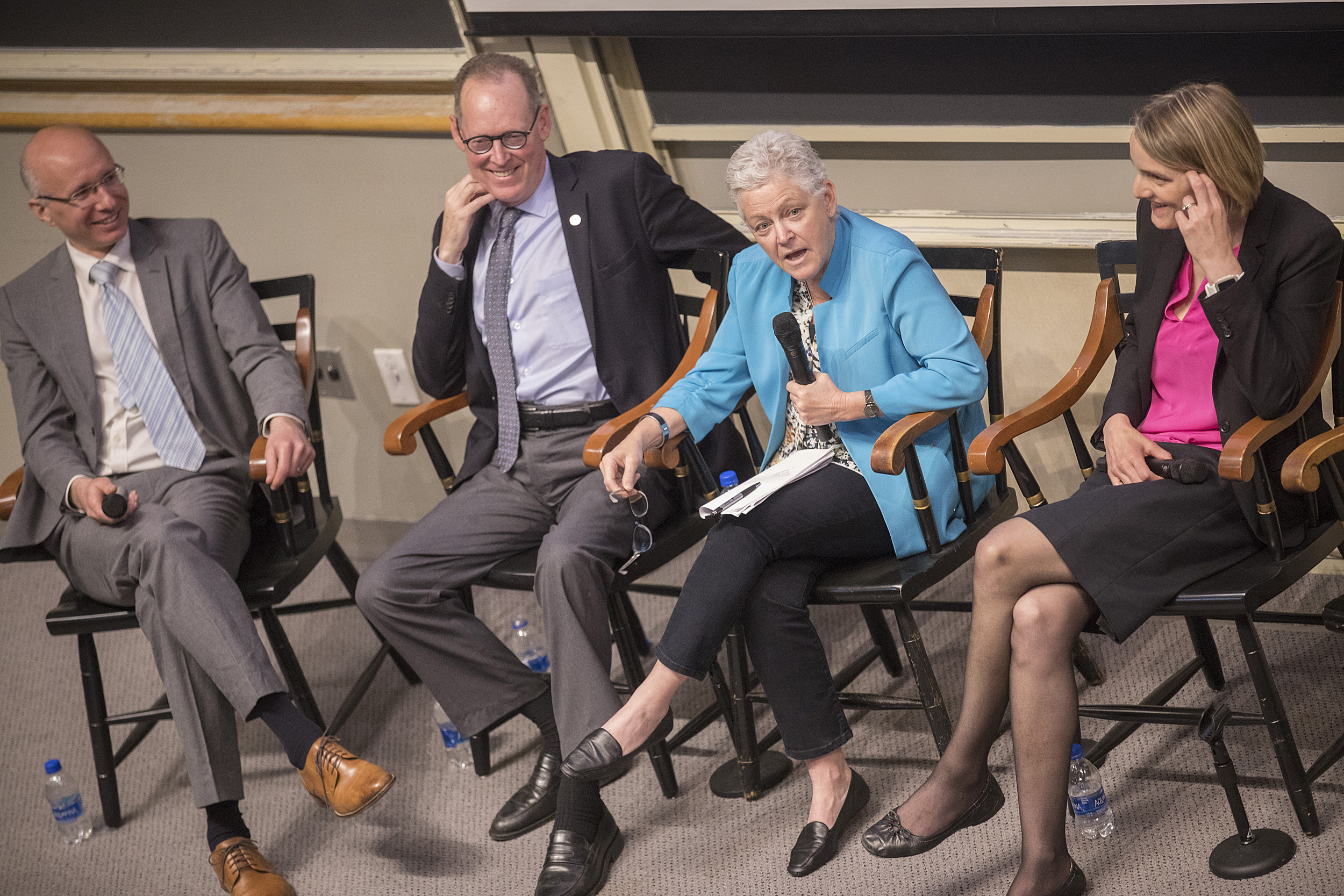
Rice founded SEAM in 2005 not only to help promote education about the environment’s role in medicine, but also to perpetuate environmental sustainability at HMS through community projects related to environmental health. SEAM members continue that mission today.
“We are working with sustainability officers and the wider HMS community in finding ways to improve sustainability and help HMS lead in addressing climate change as a medical school,” Kazi said. “We have written a petition requesting further investment in renewable energy sources, food and operations waste reduction, and energy efficiency as an institutional planning priority.”
Harvard is actively engaged in this endeavor, aiming to end its use of fossil fuels by 2050. The goal was announced earlier this year as part of a new climate action plan that includes an interim goal of fossil-fuel neutrality by 2026. To help achieve its objectives, the University is enhancing Living Lab research programs and finding innovative ways to engage students and faculty in sustainability projects on campus, and has launched a new three-year, graduate-level multidisciplinary climate solutions course and research project spanning the professional Schools.
“Fossil-fuel burning is hazardous to human health, contributing to lost years of life, and is the fifth leading cause of death,” Rice said. “Cleaning up the air improves health immediately, and saves lives. It is a medical problem with a known solution.”
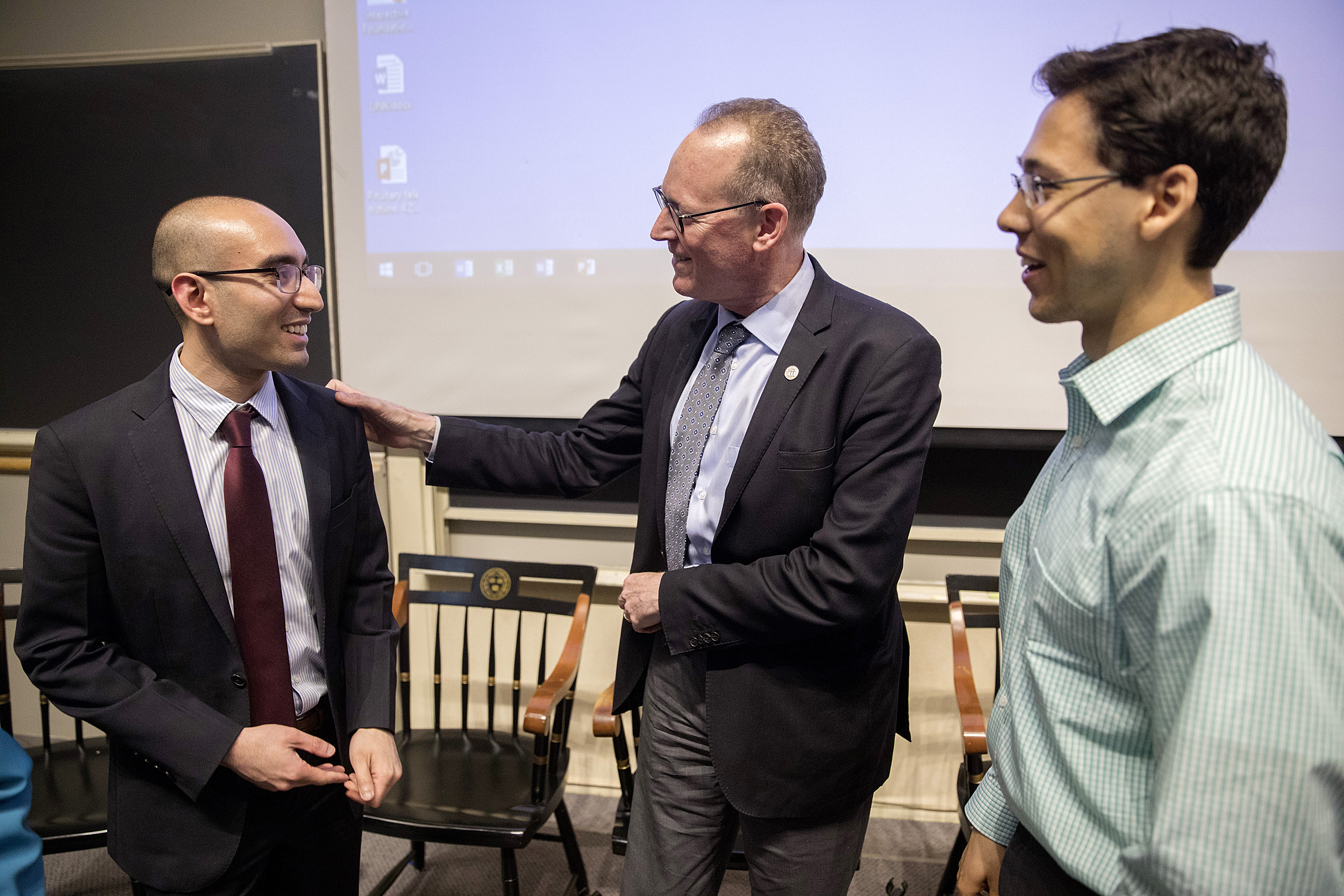
Bernstein said the health care industry itself accounts for 10 percent of greenhouse gas emissions, and HMS has a moral obligation to get its own house in order. Part of that is teaching medical students and practicing clinicians about the dangers of climate change. For example, extreme storms, such as hurricanes Harvey and Maria, can bring health care to a halt.
“Hurricane Maria knocked out an IV bag factory in Puerto Rico. That one factory loss, combined with a series of unfortunate coincident events, left all hospitals in Boston I know of rationing IV fluids and IV medications,” he said.
Panelist Gina McCarthy, director of the Center for Climate Health and the Global Environment at the Harvard Chan School and former administrator of the U.S. Environmental Protection Agency, asked how the medical community can be prepared for emergencies without addressing climate change.
“Use the science that this University creates to make the direct connection between the great things that you can do for climate [to] the great things you can do for public health,” she said. “This is actually about whether people will be able to live on this changing planet.”
Kazi said the consequences for human health are particularly felt among the most vulnerable populations all over the world, including in the U.S. The medical community needs to communicate and address these critical issues with both patients and world leaders, he said.
“We bear witness to the joys and suffering of life,” Kazi said. “The questions are being asked right now by medical providers across the country and the globe, and we hope that this discussion aids all of us in utilizing our voices to their greatest potential.”





